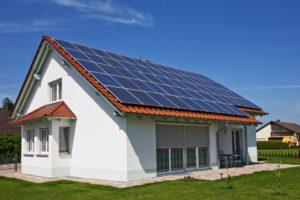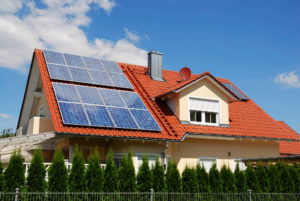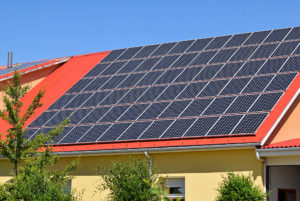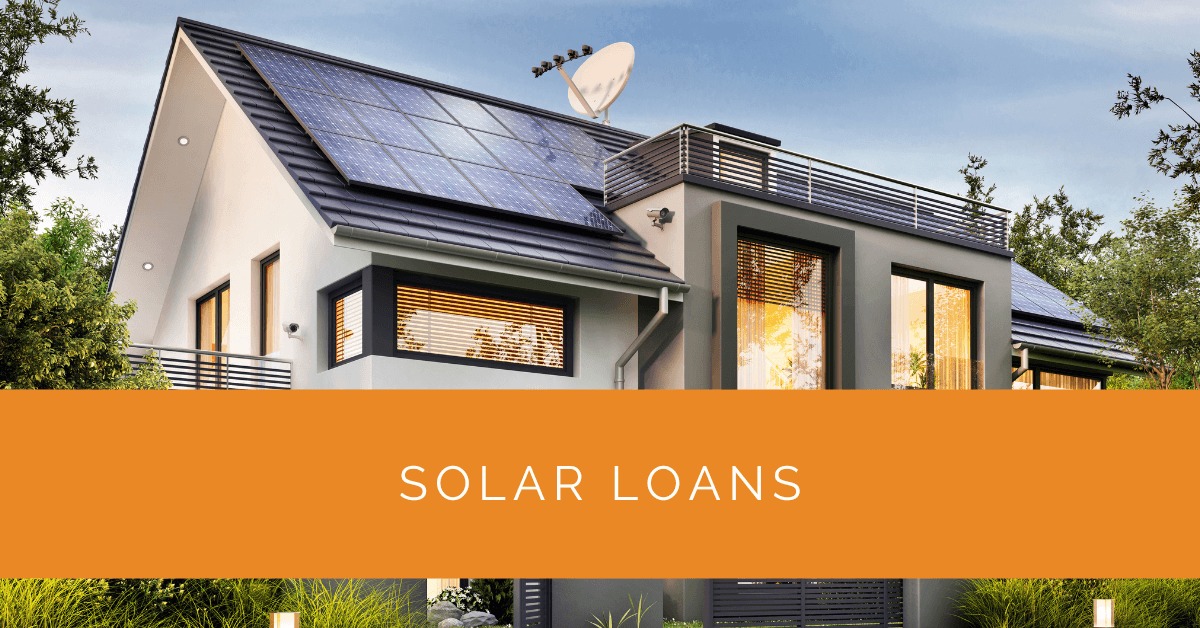Going solar is an exciting decision that offers numerous benefits, including reduced energy costs and a smaller carbon footprint. However, the upfront cost of installing a solar panel system can be a barrier for many homeowners. This is where solar loans come into play. In this article, we will explore the ins and outs of solar loans, including how they work, the benefits they offer, the types available, finding the right loan provider, the application process, and the pros and cons of opting for solar financing. Let’s dive in!
Contents
- 1 Key Takeaways
- 2 Benefits of Solar Loans
- 3 Types of Solar Loans
- 4 Finding the Right Solar Loan Provider
- 5 Applying for a Solar Panel Loan
- 6 Pros and Cons of Solar Loans
- 7 Case Study: Financing Solar Energy with Solar Loans
- 8 Expert Insights From Our Solar Panel Installers About Solar Loans
- 9 Experience Solar Excellence with Us!
- 10 Conclusion
Key Takeaways
- Solar loans allow homeowners to overcome the upfront cost barrier and embrace the benefits of solar energy, including cost savings, ownership of the system, and customization options.
- By choosing a solar loan, homeowners can contribute to a more sustainable future by reducing their reliance on traditional energy sources and decreasing their carbon footprint.
- It is crucial to research loan options, compare interest rates, and choose a reputable loan provider to make an informed decision that aligns with financial goals and provides the most advantageous financing option.
Benefits of Solar Loans
Solar loans offer many benefits, making them an attractive financing option for homeowners investing in solar energy systems.
Ownership of the Solar Panel System
One of the significant advantages of opting for a solar loan is the ownership of the solar panel system. Unlike solar leases, where a third party retains ownership, homeowners become the system’s rightful owners with a solar loan. This ownership has various benefits, including the ability to claim financial incentives like the Federal Solar Tax Credit. Owning the solar panel system allows homeowners to customize and expand it according to their energy needs and preferences.
Cost Savings and Return on Investment
Solar loans provide a pathway to long-term cost savings and a strong return on investment. Homeowners can generate clean energy by harnessing the sun’s power, reducing their reliance on traditional utility electricity. As a result, they can significantly lower their energy bills over time, offsetting the monthly loan payment. The accumulated savings on electricity costs can result in substantial financial benefits throughout the lifespan of the solar panel system. Additionally, the increase in home value associated with solar installations adds to the overall return on investment.
Flexibility in System Design and Size
Opting for a solar loan grants homeowners the flexibility to design and size their solar panel systems according to their specific energy needs. Working closely with solar companies or installers, homeowners can customize the capacity and configuration of their systems. This ensures that the solar panels align with their household’s energy consumption patterns, maximizing energy production and efficiency. The flexibility in system design allows homeowners to harness the full potential of solar energy and optimize the performance of their systems.
Environmental Impact and Sustainability
By choosing a solar loan, homeowners positively impact the environment and contribute to sustainability efforts. Solar energy is clean and renewable and reduces greenhouse gas emissions. By transitioning to solar power, homeowners actively participate in the global shift towards cleaner energy sources and help combat climate change. The environmental benefits of solar energy extend beyond individual households, influencing the collective effort to create a greener and more sustainable future.

Types of Solar Loans
Solar loans come in different types, each with its features and considerations. Understanding the options available can help homeowners decide when selecting a loan that suits their needs.
Secured Solar Loans
Secured solar loans are backed by collateral, typically the solar panel system or the homeowner’s property. Because of the reduced risk for the lender, secured loans often come with lower interest rates. Homeowners can leverage their home equity to secure the loan, making it an attractive option for those with substantial equity. Secured solar loans may also offer longer repayment terms, resulting in lower monthly payments, which can benefit homeowners seeking to manage their cash flow effectively.
Unsecured Solar Loans
Unsecured solar loans do not require collateral, making them accessible to homeowners who may not have substantial home equity or prefer not to use their homes as collateral. While unsecured loans may come with slightly higher interest rates than secured ones, they offer the advantage of not putting the home at risk. Unsecured solar loans are generally suitable for homeowners seeking a quicker and simpler loan process, as they don’t involve extensive collateral evaluation. The ease and speed of obtaining an unsecured loan make it a viable option for those who value convenience and flexibility.
Home Equity Loans and HELOCs
Home equity loans and home equity lines of credit (HELOCs) are additional financing options for homeowners to consider. These loans use the home’s equity as collateral, enabling homeowners to borrow against the value they have built up in their properties. Home equity loans and HELOCs often have competitive interest rates and flexible repayment terms. They can be appealing choices for homeowners with substantial equity who wish to take advantage of these types of loans’ favorable terms and conditions. Home equity loans provide a lump sum amount, while HELOCs offer a line of credit that homeowners can draw from as needed. Both options allow homeowners to tap into their home equity to finance their solar panel systems, making them suitable for those looking for larger loan amounts or longer repayment periods.
When considering the types of solar loans, homeowners should evaluate their financial situation, preferences, and long-term goals. Factors such as interest rates, repayment terms, collateral requirements, and loan amounts should be carefully examined to determine the most suitable option.

Finding the Right Solar Loan Provider
Selecting the right solar loan provider is crucial for a smooth and reliable financing experience. Here are some key factors to consider when finding the ideal loan provider:
Researching Loan Providers
Start by conducting thorough research on different solar loan providers. Look for reputable companies that specialize in solar financing options. Reading customer reviews and testimonials can provide insights into the experiences of previous borrowers. Additionally, consider the company’s track record, expertise, and reputation in the industry. A reliable and experienced loan provider will provide guidance and support throughout the loan process.
Comparing Interest Rates and Loan Terms
Interest rates play a significant role in the overall cost of a solar loan. Compare the interest rates various loan providers offer to ensure you secure the most competitive rate available. Additionally, consider the loan terms, including the repayment period and any associated fees. Longer loan terms may result in lower monthly payments but could lead to higher overall interest payments. Evaluate the loan terms and the interest rates to determine the most financially advantageous option.
Evaluating Financing Options
Loan providers may offer different financing options, such as fixed- or adjustable-rate loans. Fixed-rate loans provide stability with a consistent interest rate throughout the loan term. They offer predictability regarding monthly payments, allowing homeowners to budget effectively. On the other hand, adjustable-rate loans typically start with a lower interest rate but can fluctuate over time based on market conditions. Evaluate your risk tolerance, financial goals, and comfort level with potential interest rate changes to choose the most suitable financing option.
Consider other factors such as customer service, responsiveness, and the loan provider’s willingness to answer questions and address concerns. Finding a loan provider that aligns with your communication preferences and provides exceptional customer support is essential.
Applying for a Solar Panel Loan
Once you’ve identified the right loan provider, the next step is to navigate the application process. Here’s a breakdown of what to expect:
Eligibility and Requirements
Review the eligibility criteria and requirements set by the loan provider. These may include factors such as credit score, income verification, property ownership, and the specifics of the solar panel installation project. Understanding the requirements beforehand will help streamline the application process and increase your chances of approval. Take steps to improve your credit score or gather the necessary documentation to meet the eligibility criteria.
Documentation and Application Process
Gather the required documents needed for the loan application. These documents may include proof of income, identification documents, property ownership documents, and details about the solar panel system you plan to install. Provide accurate and up-to-date information to ensure a smooth application process. Follow the loan provider’s application process, which may involve filling out an application form, submitting the required documents, and providing any additional information as requested.
Loan Approval and Disbursement
After submitting your application, the loan provider will review the information and assess your eligibility. If approved, you will receive a loan offer outlining the loan amount, interest rate, repayment terms, and associated fees. Take the time to carefully review the terms and conditions of the offer before accepting it. It’s essential to understand the loan terms and the impact they will have on your financial obligations. Once you accept the loan offer, the loan funds will be disbursed to you, allowing you to proceed with installing your solar panel system.

Pros and Cons of Solar Loans
As with any financial decision, weighing the pros and cons of solar loans to determine if they align with your specific needs and circumstances is essential.
Advantages of Solar Loans
- Financial Ownership: Opting for a solar loan grants you full ownership of the solar panel system, allowing you to benefit from incentives and tax credits associated with solar energy ownership, such as the Federal Solar Tax Credit.
- Cost Savings: By generating your solar energy, you can significantly reduce your reliance on traditional grid electricity, leading to long-term cost savings on your energy bills. These savings can offset the loan payment, making solar energy an economically viable choice.
- Increased Home Value: Installing a solar panel system increases the value of your home. Not only do you benefit from reduced energy costs, but you also enjoy a higher resale value should you decide to sell your property in the future.
- Energy Independence: With a solar panel system, you can generate clean energy, reducing your carbon footprint and contributing to a more sustainable environment.
- Flexible Financing Options: Solar loans offer flexibility regarding loan types, interest rates, and repayment terms. This allows you to tailor the financing to your financial situation and preferences.
Considerations and Potential Drawbacks
- Interest Rates: Depending on your creditworthiness and the loan provider, interest rates for solar loans can vary. It’s important to compare rates from different lenders and understand the impact of the interest rate on the total cost of the loan.
- Loan Payments: Taking on a solar loan means committing to regular loan payments over an extended period. It’s crucial to assess your budget and ensure you can comfortably meet the payment obligations without straining your finances.
- Long-Term Commitment: Solar loans typically involve longer repayment terms, extending the financial commitment over several years. Consider your long-term goals and financial stability to ensure you are comfortable with the long-term obligation.
- Collateral Requirements: Secured solar loans may require collateral, such as your home or the solar panel system. This adds a layer of risk, as the collateral may be at stake in case of default.
- Creditworthiness and Eligibility: Eligibility for a solar loan is often dependent on creditworthiness and other criteria set by the loan provider. A less-than-ideal credit score may impact your ability to secure a favorable loan or influence the interest rate offered to you.
Carefully weigh these pros and cons based on your circumstances and financial goals to decide whether a solar loan is the right financing option for you.
Case Study: Financing Solar Energy with Solar Loans
Background
At Solar Panels Network USA, we are committed to helping homeowners transition to solar energy efficiently and affordably. This case study highlights a recent project where we assisted a family in financing their solar panel system through a solar loan, showcasing the process and benefits of solar financing.
Project Overview
The homeowners were interested in installing a solar panel system to reduce their energy bills and carbon footprint. However, the upfront cost of the installation was a significant barrier. They needed a financing solution that would allow them to invest in solar energy without straining their finances.
Implementation
- Assessment and Planning: We started by assessing the homeowners’ energy needs and evaluating their property for solar panel installation. This included analyzing their monthly electricity consumption and identifying optimal locations for the solar panels.
- Choosing the Right Solar Loan: After discussing the homeowners’ financial situation and preferences, we explored various solar loan options. We recommended an unsecured solar loan, which provided flexibility without requiring collateral. The homeowners appreciated the ease and speed of obtaining this type of loan.
- Securing Financing: We guided the homeowners through the loan application process, helping them gather the necessary documentation and submit the application. The loan provider offered competitive interest rates and favorable terms, making the solar loan an attractive option for the family.
- Installation: Once the loan was approved, we proceeded with the installation of a 7 kW solar panel system. Our team handled the installation efficiently, ensuring minimal disruption to the homeowners’ daily activities. We also installed a monitoring system to track the energy production and consumption.
Results
The solar loan provided the homeowners with several key benefits:
- Immediate Savings: By financing the installation through a solar loan, the homeowners avoided the significant upfront cost. They began saving on their energy bills from the first month.
- Ownership and Incentives: Owning the solar panel system allowed the homeowners to take advantage of the Federal Solar Tax Credit, further reducing their overall investment cost.
- Increased Home Value: The solar panel system increased the value of their property, making it a valuable asset for future resale.
- Environmental Impact: The family significantly reduced their carbon footprint by generating clean, renewable energy, contributing to a more sustainable environment.
Summary
Our project with the homeowners demonstrates the practical and financial benefits of using a solar loan to finance solar panel installations. By selecting an appropriate loan type and securing favorable terms, the family was able to invest in solar energy, achieve immediate savings, and enjoy long-term benefits. At Solar Panels Network USA, we continue to provide tailored solar solutions that meet our clients’ unique needs, promoting sustainable and efficient energy use.
Expert Insights From Our Solar Panel Installers About Solar Loans
Solar loans make it possible for many homeowners to invest in solar energy without the burden of hefty upfront costs. It’s a practical solution that opens the door to long-term savings and environmental benefits.
Senior Solar Installer
Opting for a solar loan means you own the system outright, which allows you to benefit from tax incentives and increases the value of your property. It’s a smart financial decision for those looking to maximize their investment.
Lead Solar Technician
Navigating the different types of solar loans can be challenging, but understanding your options, such as secured versus unsecured loans, can help you find the best fit for your financial situation and energy needs.
Chief Solar Engineer
Experience Solar Excellence with Us!
Trust in Solar Panels Network USA, where our seasoned experts deliver top-quality solar solutions for homes and businesses nationwide. With a legacy of countless successful installations and a commitment to sustainable energy, we’re your reliable partner in the solar journey. Ready for a brighter, eco-friendly future? Call us now at (855) 427-0058 and harness the power of the sun!
Conclusion
Solar loans offer homeowners a practical and financially viable solution to embrace the benefits of solar energy. By opting for a solar loan, homeowners can overcome the upfront cost barrier of installing solar panel systems and unlock many advantages. With ownership of the solar panel system, homeowners can enjoy long-term cost savings and return on investment, along with the flexibility to customize and expand their system according to their energy needs.
Furthermore, solar loans allow homeowners to contribute to a more sustainable future. By generating clean, renewable energy through their solar panel systems, homeowners reduce their reliance on traditional energy sources and decrease their carbon footprint. This transition to solar power benefits individual households and contributes to the global efforts to combat climate change and build a cleaner, greener planet for future generations.
When considering solar loans, it’s important to carefully evaluate the various loan options, compare interest rates, and choose a reputable loan provider. By conducting thorough research and understanding the terms and conditions, homeowners can make informed decisions that align with their financial goals and provide them with the most advantageous financing option.
Disclaimer: The information provided in this article is intended for general informational purposes only and does not constitute financial advice. Readers are advised to consult with a qualified financial professional before making any decisions or taking any actions based on the information provided in this article.
About the Author
Solar Panels Network USA stands at the forefront of solar energy solutions, driven by a team of seasoned solar engineers and energy consultants. With over decades of experience in delivering high-quality solar installations and maintenance, we are committed to promoting sustainable energy through customer-centric, tailored solutions. Our articles reflect this commitment, crafted collaboratively by experts to provide accurate, up-to-date insights into solar technology, ensuring our readers are well-informed and empowered in their solar energy decisions.

